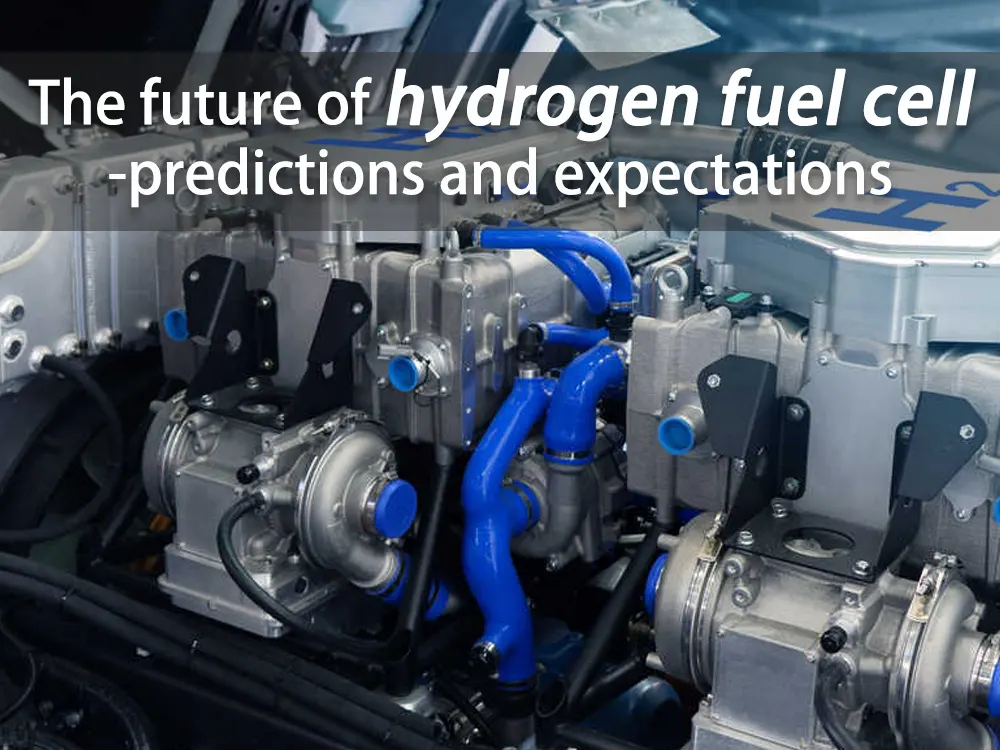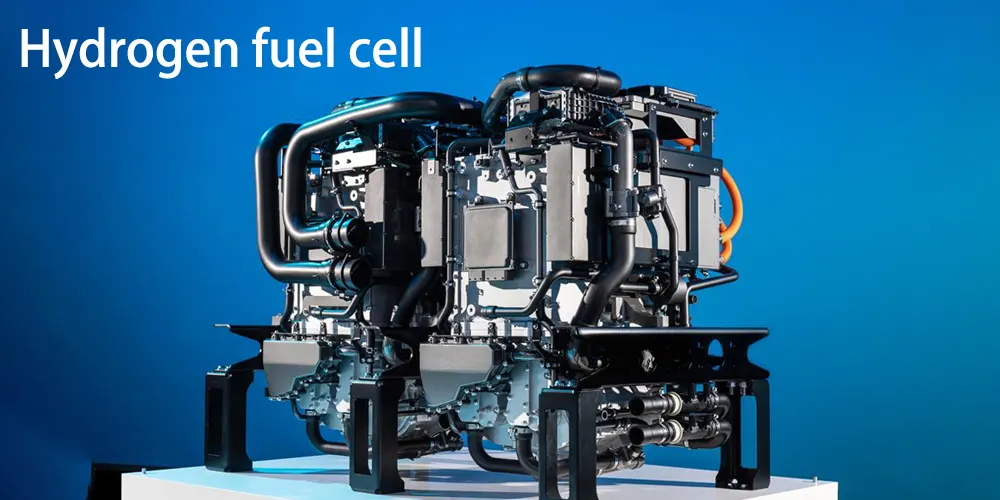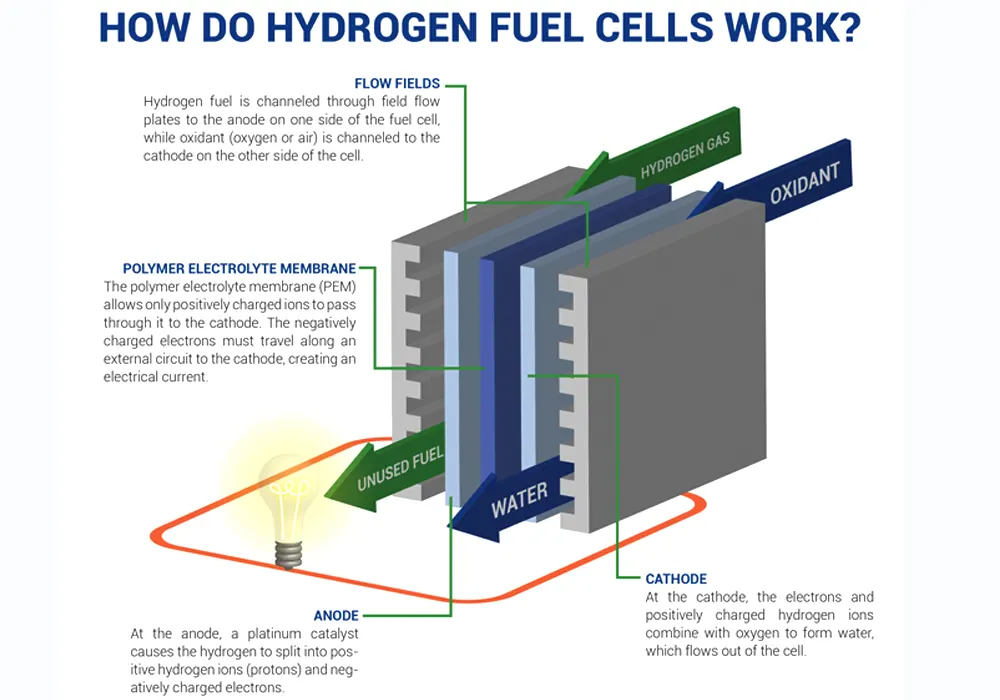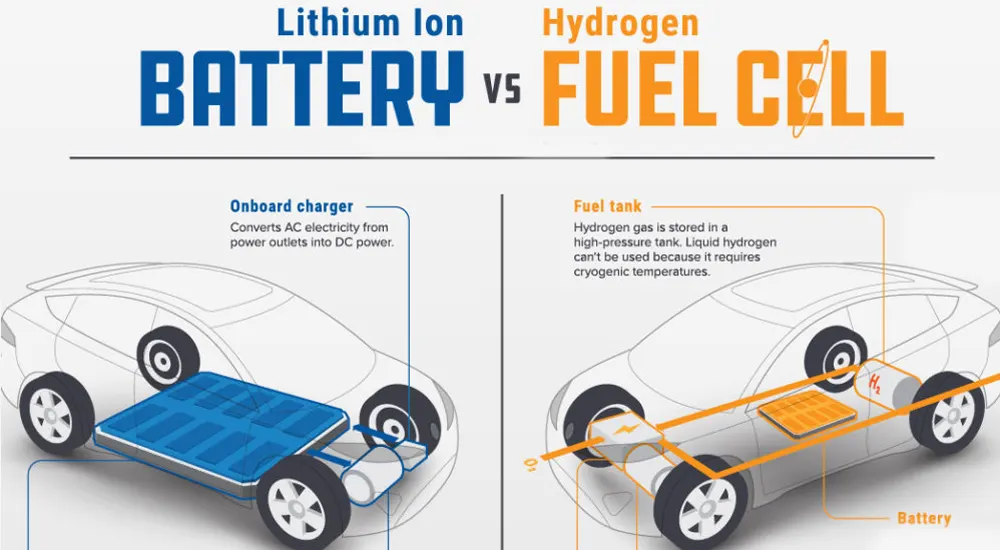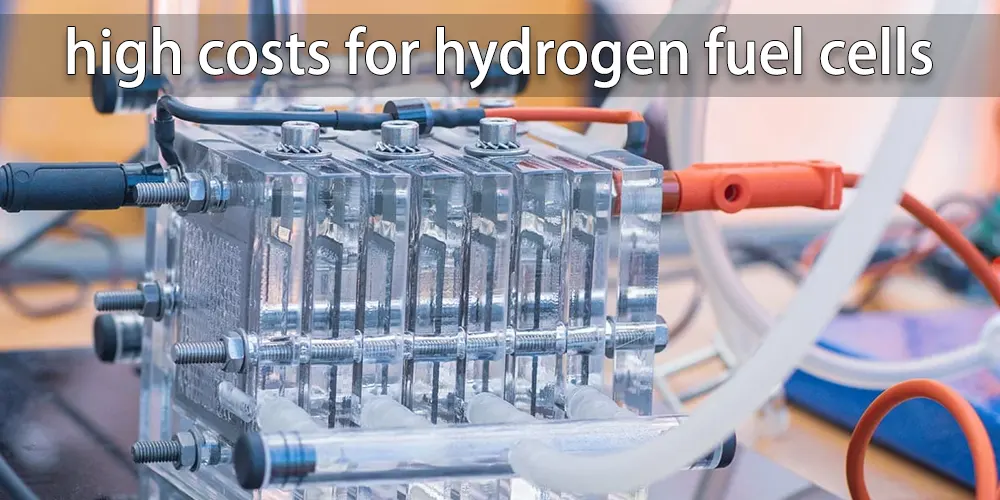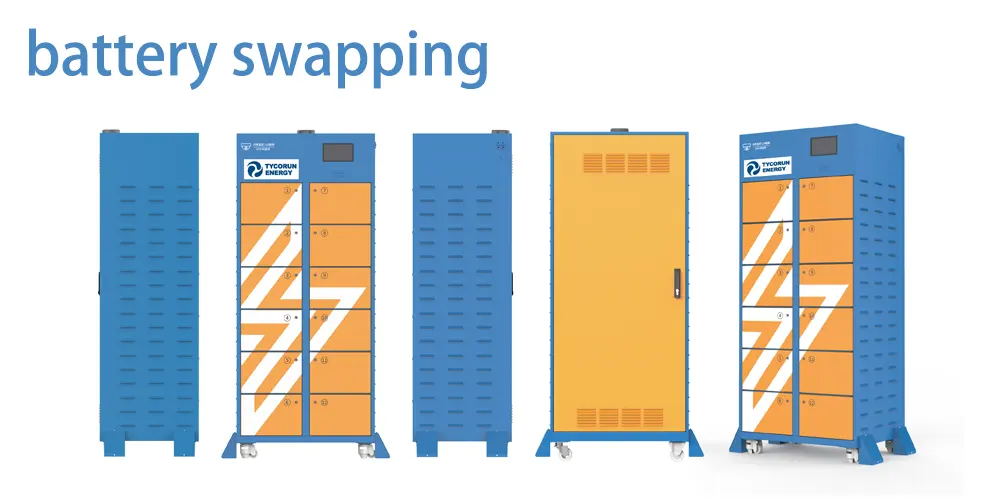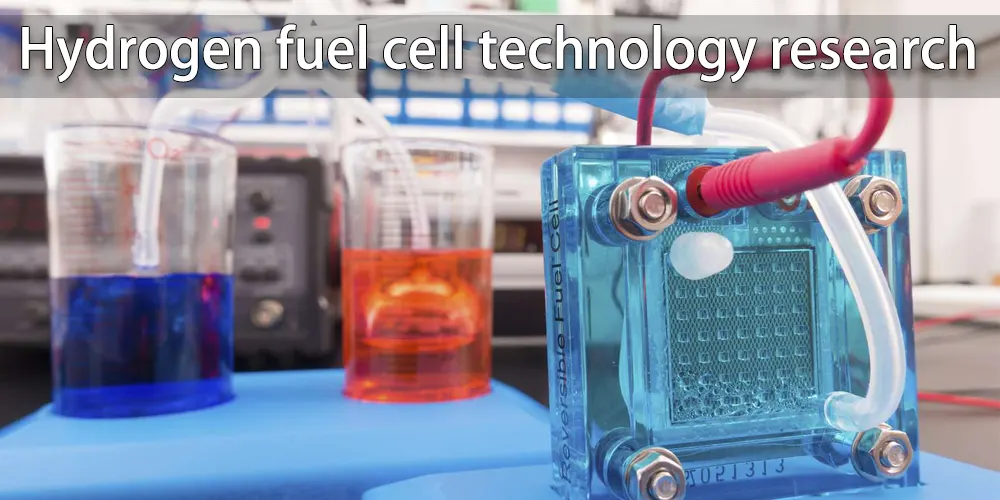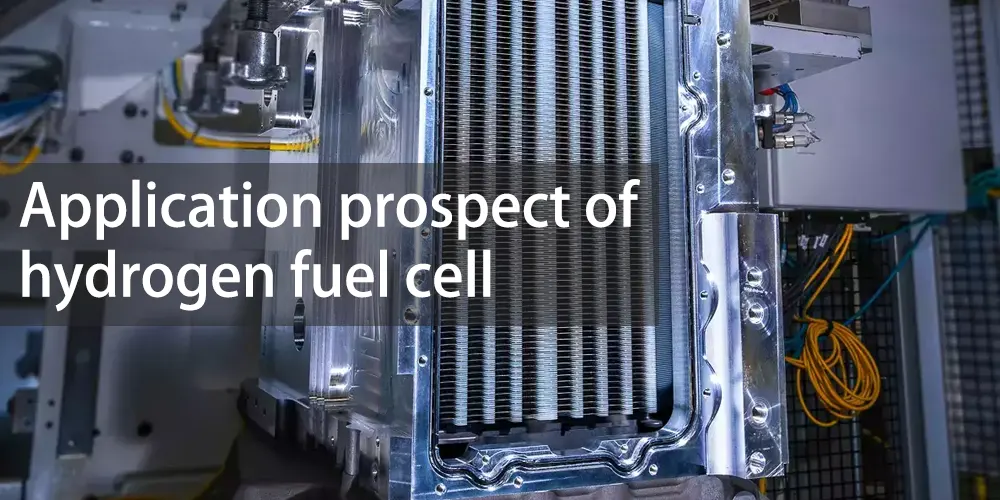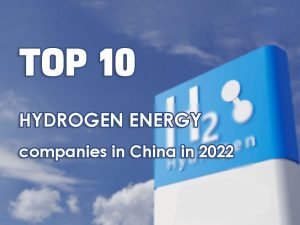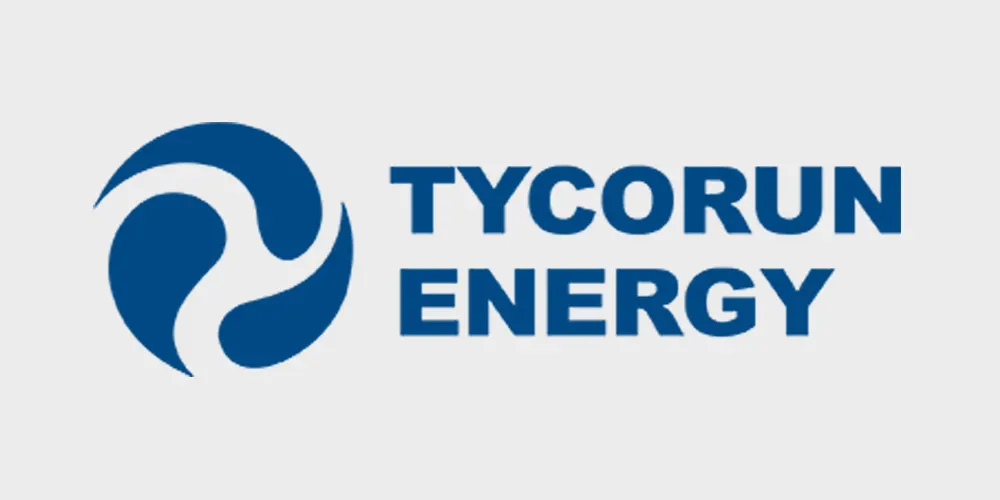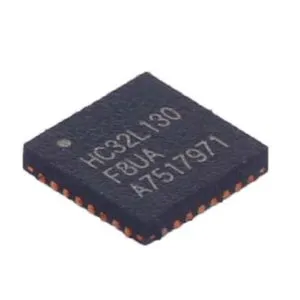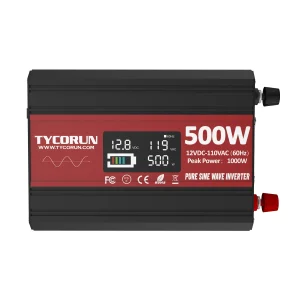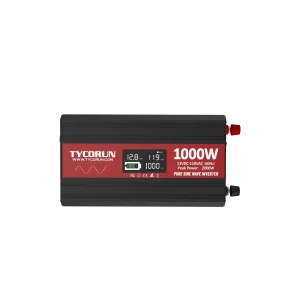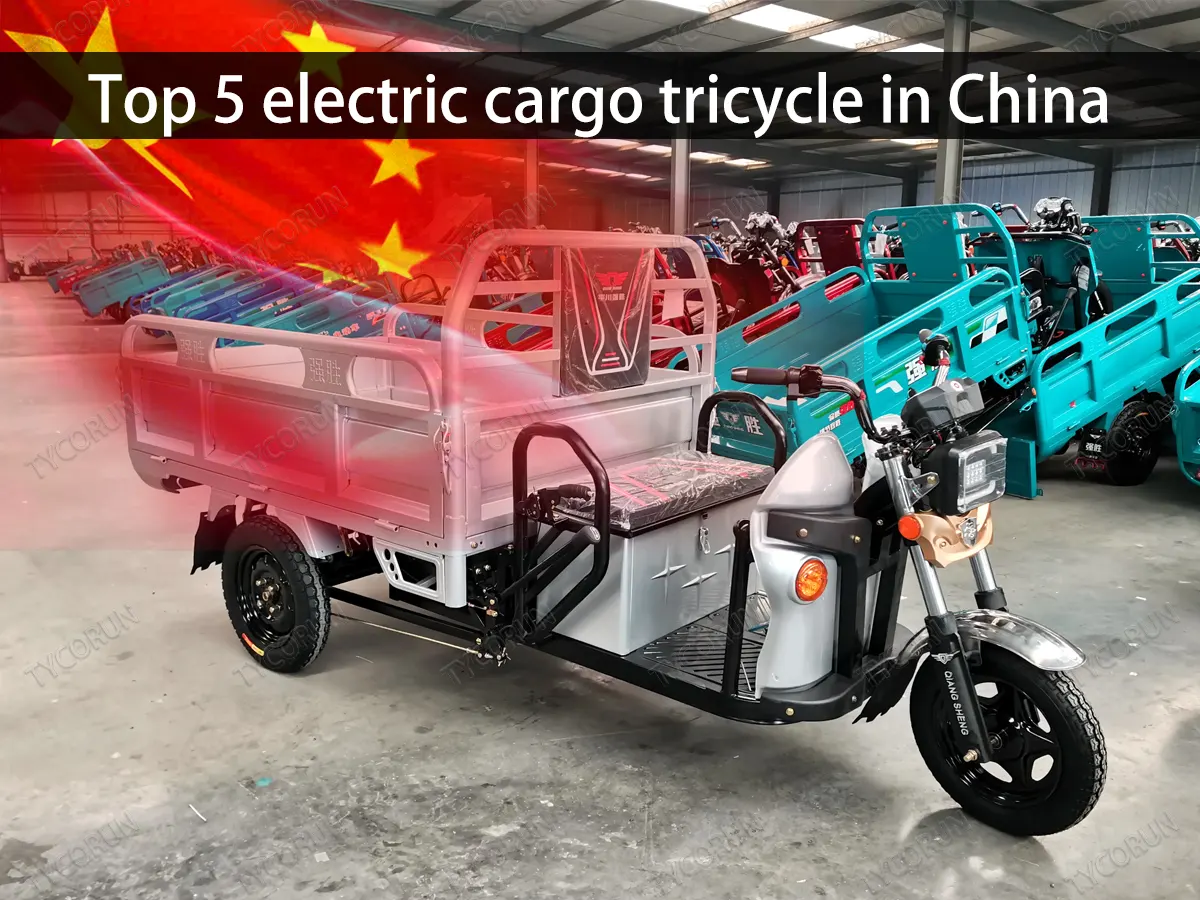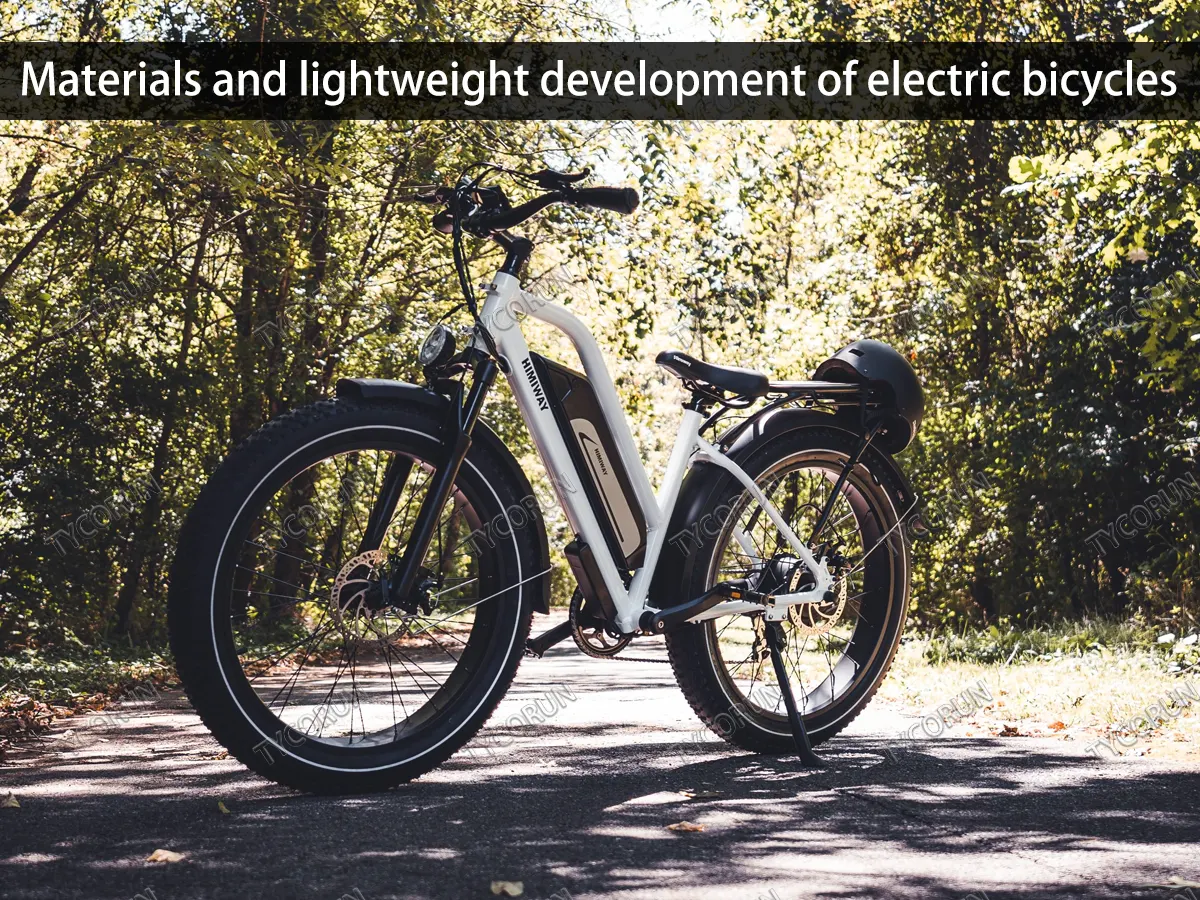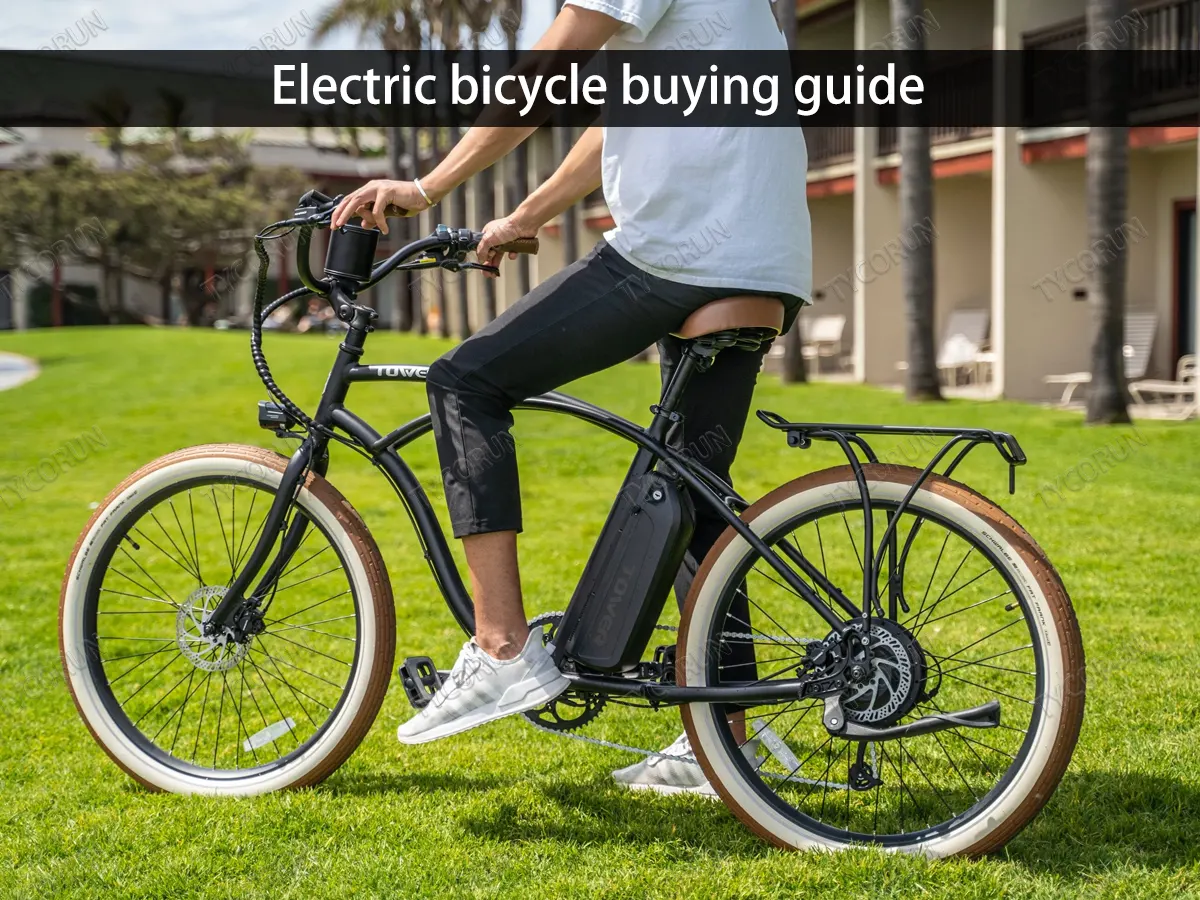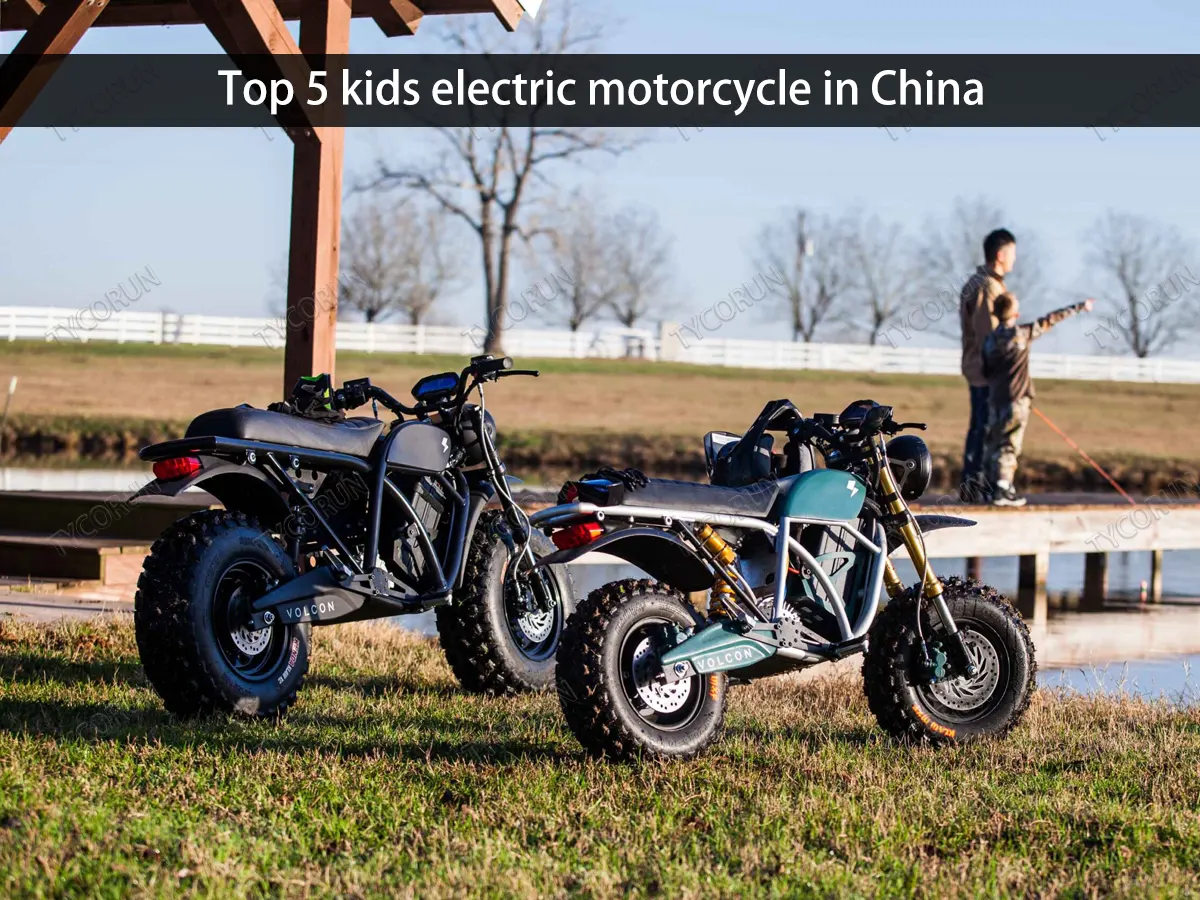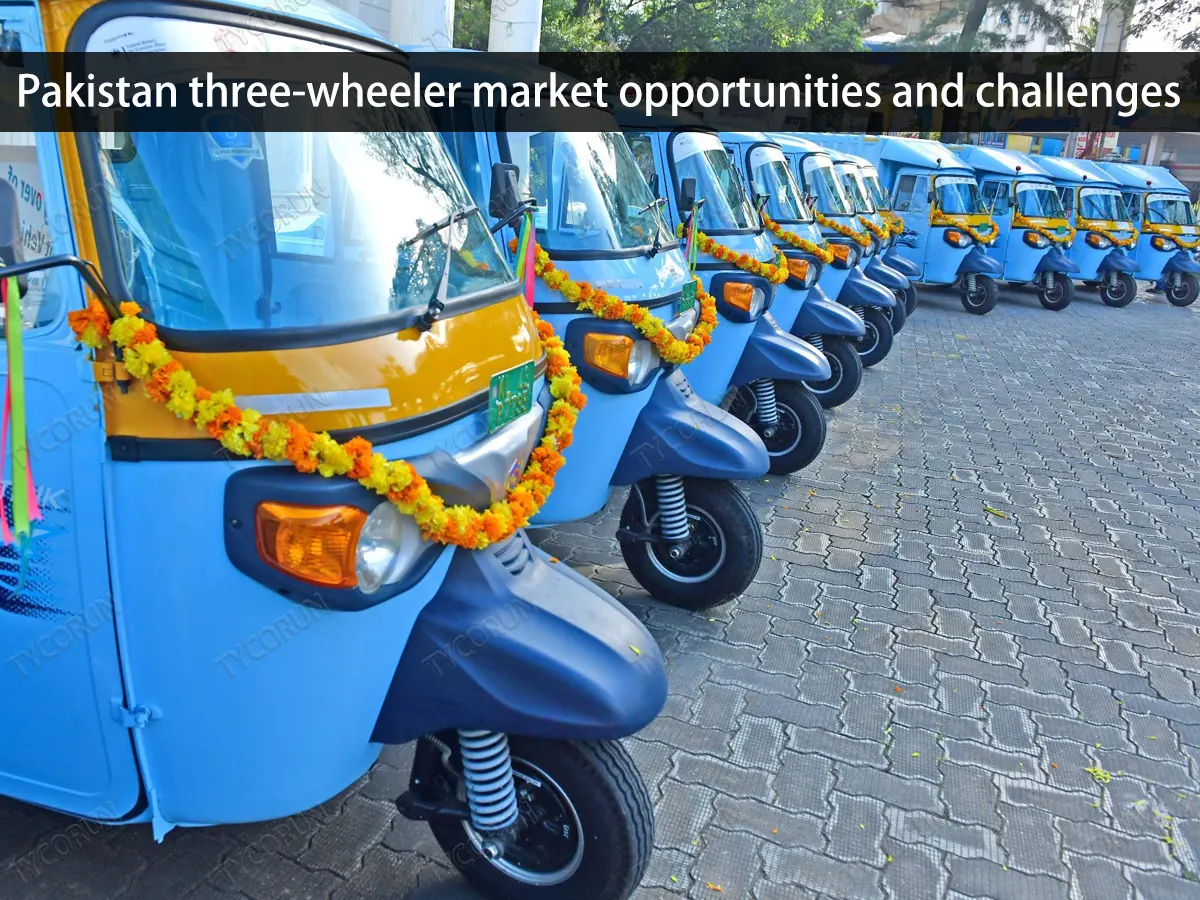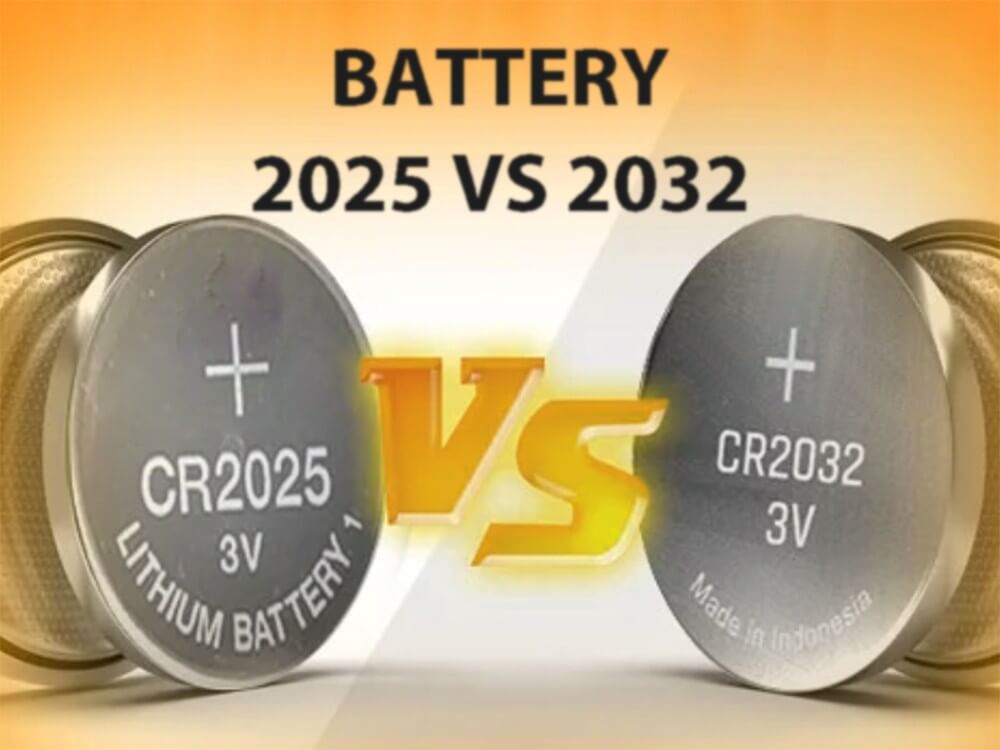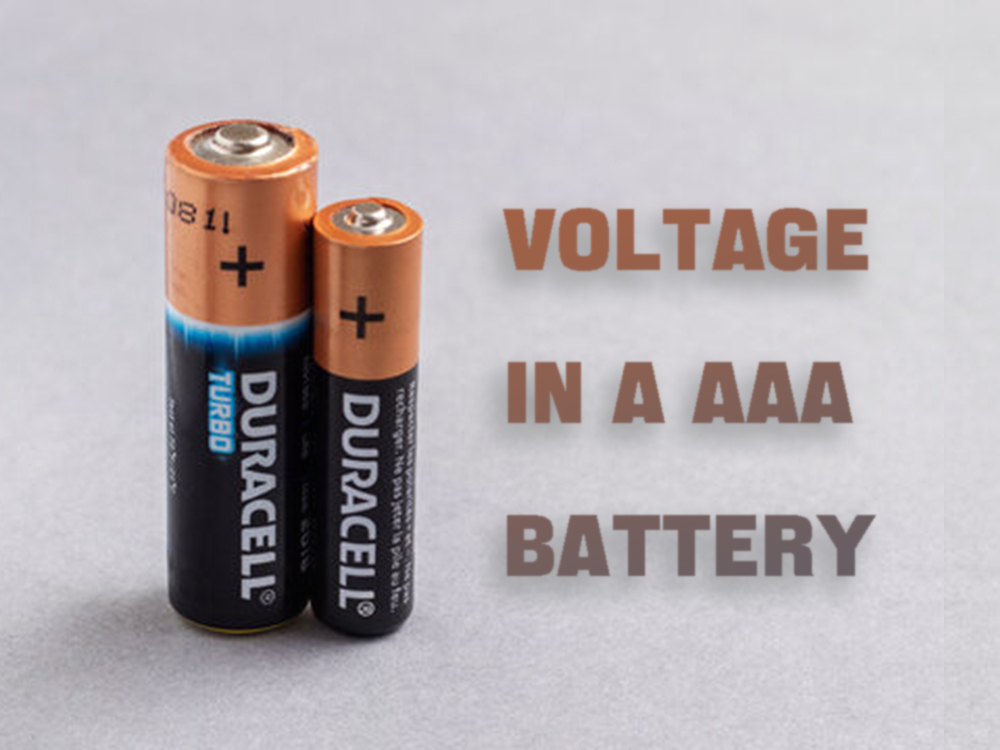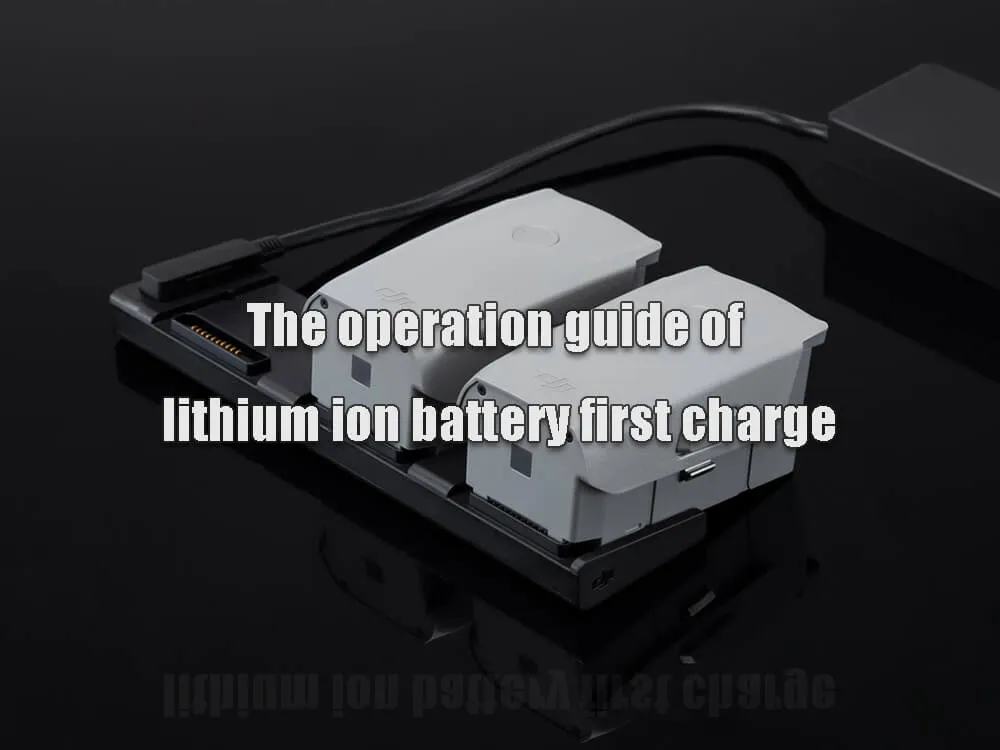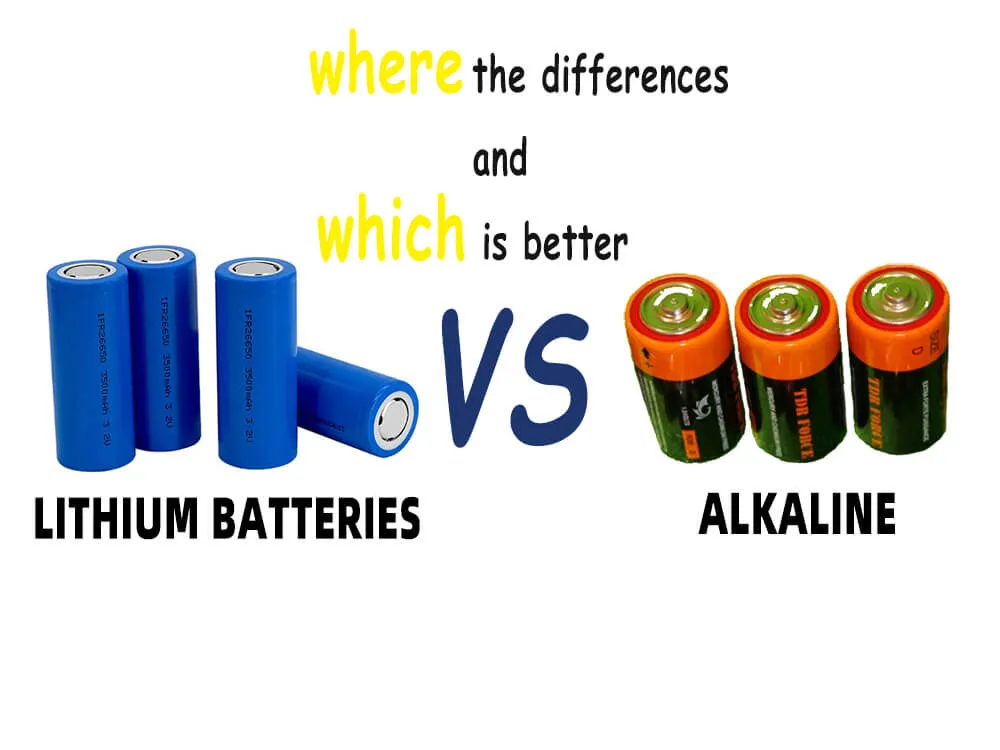Home » Battery Materials » The future of hydrogen fuel cell – predictions and expectations
The future of hydrogen fuel cell - predictions and expectations
As a clean energy that can store waste energy and promote the transformation from traditional fossil energy to green energy, hydrogen energy is regarded as a disruptive technology direction of the future energy revolution.
Hydrogen fuel cell is the key carrier to realize the conversion of hydrogen energy into electric energy. In this article, we will explore the basics of hydrogen fuel cell, how it work, and its technology research.
Hydrogen fuel cell
The function of the battery is to convert the chemical energy stored in the material into electrical energy output.
Hydrogen is rich in chemical energy. If it is used in the form of combustion, it will inevitably reduce efficiency due to heat loss.
Therefore, we need a device that can bypass combustion to directly convert the energy in hydrogen into electricity. This device is a hydrogen fuel cell. Hydrogen fuel cells work the exact opposite of water electrolysis.
How does hydrogen fuel cell work?
A hydrogen fuel cell is a battery that uses the chemical element hydrogen to store energy. The basic principle is the reverse reaction of electrolyzing water, supplying hydrogen and oxygen to the anode and cathode respectively.
Among them, hydrogen gas is decomposed into electrons and protons (hydrogen ions) by a catalyst.
Next, protons pass through the “proton exchange membrane” to the negative electrode, and react with oxygen to become water and heat.
Electrons flow from the positive pole to the negative pole through an external circuit, thereby generating electricity.
Hydrogen fuel cell vs lithium battery
Raw material acquisition
A hydrogen fuel cell is a hydrogen gas that decomposes electrons and hydrogen ions through the catalyst (platinum) in the positive electrode of the fuel cell. Catalyst platinum is a scarce metal resource, and hydrogen fuel cells have not yet found an alternative material.
Lithium battery raw materials, such as lithium iron phosphate, are relatively more abundant and environmentally friendly. At present, lifepo4 cells have been industrialized and widely used in the market.
Battery structure
Hydrogen fuel cells are different from common lithium batteries, and the system is more complex, mainly composed of stacks and system components (air compressors, humidifiers, hydrogen circulation pumps, hydrogen bottles).Lithium-ion batteries are mainly composed of positive electrodes, negative electrodes, separators and electrolytes.
Energy efficiency
The process of converting electrical energy into driving force for lithium batteries is very short, charging-discharging, and highly efficient. Hydrogen also needs to be converted by electricity, so hydrogen is used as a secondary energy source, and the energy utilization efficiency is low.
Energy density
From the perspective of mass energy density, the energy density of lithium iron phosphate battery is 100 to 200Wh/kg, and the theoretical energy density of ternary lithium batteries is 300 to 350Wh/kg.
Hydrogen fuel cells have a higher energy density than lithium-ion batteries. But current industrial by-product hydrogen is not pure enough to be used directly in hydrogen fuel cells systems without further purification.
Cost
The source, storage, and safe use of hydrogen are very stringent, resulting in high costs for hydrogen fuel cells. Relatively speaking, lithium batteries are low in cost and have been produced on a large scale.
Safety
For hydrogen fuel cells, leakage and control are the main source of potential safety hazards in the battery system, which belongs to the physical level. The safety hazard of lithium-ion batteries mainly comes from the uncontrollable chain reaction, which belongs to the chemical level. In the event of an extremely violent collision, the hazard of the fuel cell will be even greater.
Battery application
Hydrogen fuel cell vehicles can only rely on hydrogen refueling stations, but the cost of hydrogen refueling stations is very high.
In contrast to lithium-ion electric vehicles, the current household charging piles, battery swapping technology is becoming more and more mature, and the cost of power station replacement is also lower.
Hydrogen fuel cell technology research
Hydrogen fuel cells are mainly composed of stacks and system components. The stack is the core of the entire battery system, including each battery unit composed of membrane electrodes, bipolar plates, current collector plates, end plates, sealing rings, etc. In recent years, research on hydrogen fuel cell technology has focused on stacks, bipolar plates, system components, and control technologies.
Membrane electrode
Membrane electrode (MEA) is the core component of hydrogen fuel cell system, usually composed of cathode diffusion layer, cathode catalyst layer, electrolyte membrane, anode catalyst layer and anode gas diffusion layer, directly determines the power density, durability and service life.
Bipolar plates
Bipolar plates (BPs) in hydrogen fuel cells, also known as flow field plates, play the role of separating reaction gases, removing heat, and discharging chemical reaction products (water); Excellent mechanical and corrosion resistance requirements. Based on current production capacity, BPs account for nearly 60% of the mass and more than 10% of the cost of the entire hydrogen fuel cells stacks.
Hydrogen fuel cell system components
In order to maintain the normal operation of the stack, the hydrogen fuel cell system also requires the coordination of external auxiliary subsystems such as hydrogen supply system, water management system, and air system. The corresponding system components include hydrogen circulation pump, hydrogen bottle, humidifier, and air compressor.
The fuel cell will produce a large amount of water in the working state, too low water content will produce “dry film” phenomenon, hindering proton transport; too high water content will produce “water flooding” phenomenon, hindering the diffusion of gas in porous media, The output voltage of the stack is low.
System control strategy
The lifetime or durability of a hydrogen fuel cell system is closely related to the system control strategy. When starting a hydrogen fuel cell vehicle, the power supply needs to be turned on in real time to obtain sufficient pressure and reaction gas
When idling or stopping, the power supply also needs to be turned on in order to purge the unreacted gas and generated water in the stack , to avoid “water flooding”, “hydrogen embrittlement”, chemical corrosion and other situations.
Application prospect of hydrogen fuel cells
The future application forecast of hydrogen fuel cells mainly includes two categories: transportation and energy storage.
The application of hydrogen fuel cells in the field of transportation includes passenger cars, commercial vehicles, trains, ships, aircraft, etc.
Hydrogen fuel cell heavy trucks have become the focus of the current development of fuel cell vehicles. Hydrogen energy heavy trucks can operate smoothly in low temperature and harsh environments, which greatly fills in the defects and shortcomings of pure electric vehicles.
Hydrogen fuel cell energy storage is a form of chemical energy storage. Hydrogen fuel cells can be highly coupled with new power systems to form large-scale, long-period, and cross-season battery energy storage solutions.
Overall, the application prospect of hydrogen fuel cells has broad space. With continuous research and development, hydrogen fuel cells have the potential to play an important role in meeting the world’s energy needs in a sustainable and environmentally friendly manner.

